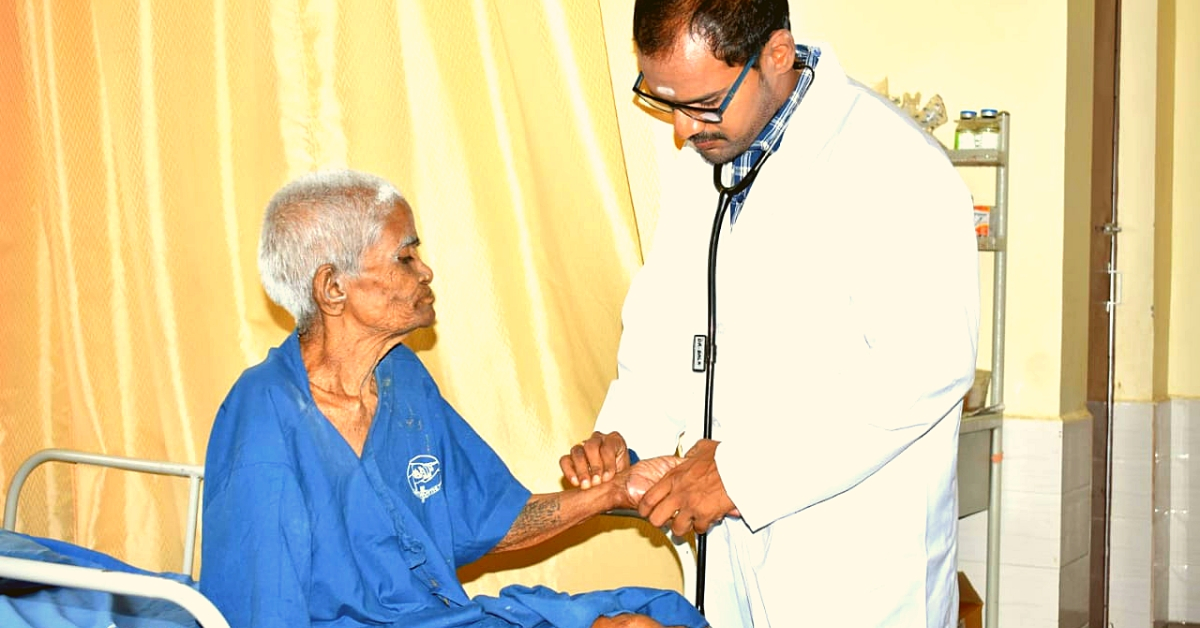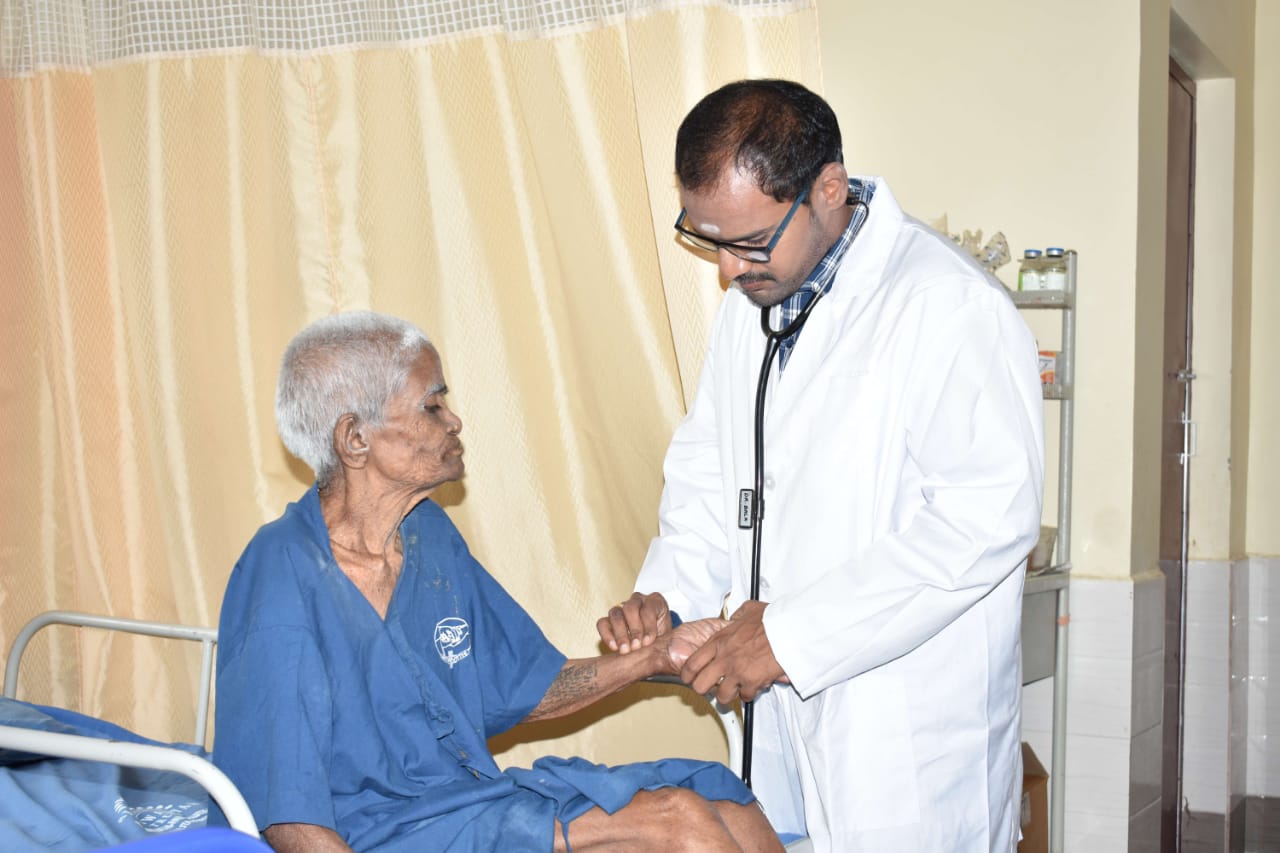India’s First Right-To-Healthcare Law: What It Means & Why You Should Care
If countries like China, Singapore and Thailand can offer the right to basic healthcare services, why can't India? #RightToHealthcare

Article 21 of the Constitution guarantees protection of life and personal liberty to every citizen. Under the laws of this country, the State is obligated to maintain basic health services for all citizens, but how often does it deliver?
Ironically, in a country where tens of millions are pushed into the jaws of poverty every year, at times due to the expenditure on medical bills, healthcare infrastructure’s share in the GDP is a mere 1.5 per cent. With 1.6 million Indians dying every year due to the poor quality of healthcare, passing a law guaranteeing healthcare to all Indians becomes critical. Moreover, the state must have the capacity to deliver on these promises.
So, what does the Right to Healthcare entail? Going by the manifesto of one major political party ahead of the general elections this year, the Right to Healthcare will provide,
each citizen the right to healthcare services, including free diagnostics, outpatient care, medicines and hospitalisation through a network of public hospitals and enlisted private hospitals.
This will entail raising the expenditure on public healthcare to 3 per cent of the GDP from 1.5 per cent. Opposition parties have also talked about implementing the Clinical Establishment Act to regulate the way both the public and private health sector function by setting prescribed minimum standards of facilities and services provided by all established clinics.
Recently, the Government of India introduced the Ayushman Bharat scheme which seeks to offer Rs 5 lakh insurance cover to over 500 million Indians.
Going beyond all the political talk, for the average citizenry, the Right to Healthcare will entail a clear set of entitlement. Setting the ground for the Right to Healthcare is Rajasthan, which, in close coordination with various civil society groups, is working to draft a law following the campaign promise it made, according to this IndiaSpend report.
Back in 2011, the State government started a scheme whereby citizens availing healthcare services in government hospitals could access 606 essential and non-essential drugs free of cost, among other things. As a consequence, the number of patients visiting cheaper government hospitals increased by a whopping 81 per cent over a four-year period until 2016.

Another outcome of this scheme was a reduction in unnecessary and expensive additions to doctor prescriptions. It received a lot of praise from the World Health Organization.
With the purchase of medicines taking up more than 70 per cent of total healthcare costs in rural India, schemes like this, for example, can find a place in a Right to Healthcare Act. Set into law, it could help many ordinary Indians reduce their out-of-pocket expenditure on healthcare.
Nonprofits like Prayas, working with the Rajasthan government, have also set the ball rolling by presenting a first draft of this law following consultation with various expert and civil society groups.
Also Read: 1 Stop, 556 Schemes: Haryana Govt’s Unique System Can Revolutionise How India Works
One interesting provision stated in the draft law reads:
Guarantee basic health care services to every citizen of the State within 3 km (or 30 minutes of walking distance), full range of primary care within 12 km, services for treatment of serious illnesses within 50 km (one hour by transport) and access to treatment of critical illnesses within 150 km by skilled human resource with state-of-the-art infrastructure, blood bank, equipment, and delivery of services, 24X7 ambulance service that is available to connect homes to each level of care.
Another interesting provision of this draft law is a demand to increase per capita expenditure to Rs 3,000 in Rajasthan as opposed to the current figure of Rs 1,600.
Besides, the right to healthcare legislation will also cover other related concerns like basic housing and sanitation that play a critical role in determining health outcomes.
Finally, it’s also about fixing accountability in the system when there are gaping failures. In the event of a medical-related tragedy, it’s usually the frontline doctor or health worker operating in a tainted camp who are left holding the bag and facing suspension or termination, when it’s the entire district/state administration that is responsible for such failures.
A Right to Healthcare Act is expected to hold senior officials also accountable.
Having said that, introducing this legislation will also mean a systemic overhaul to ensure government agencies are capable of spending all the additional funds. This will mean, for example, building robust medicine procurement and supply system.
Naturally, such endeavours will take some time, but as we have seen in numerous examples across different sectors like education and public services delivery systems, this is possible with the requisite political will. Given below are two examples of how political will and an inspired bureaucracy can fix seemingly intractable structural problems.
Also Read: Haryana Holds the Blueprint For Improving Govt Schools Across India. We Tell You Why.
While there isn’t a definitive timeline for the establishment of a Right to Healthcare Bill in Rajasthan, what’s heartening to see is that healthcare is finally making its mark in the mainstream political discourse. In cities like Delhi and Hyderabad, State governments have set up neighbourhood clinics to improve last mile delivery. If countries China, Singapore and Thailand can offer the right to basic healthcare services, why can’t India?
“There is much evidence of the big contributions that UHC (universal healthcare) can make in advancing the lives of people, and also in enhancing economic and social opportunities including facilitating the possibility of sustained economic growth,” wrote noted development economist Amartya Sen in a 2015 issue of the Harvard Public Health Review.
What are we waiting for?
(Edited by Saiqua Sultan)
Like this story? Or have something to share? Write to us: [email protected], or connect with us on Facebook and Twitter.
If you found our stories insightful, informative, or even just enjoyable, we invite you to consider making a voluntary payment to support the work we do at The Better India. Your contribution helps us continue producing quality content that educates, inspires, and drives positive change.
Choose one of the payment options below for your contribution-
By paying for the stories you value, you directly contribute to sustaining our efforts focused on making a difference in the world. Together, let’s ensure that impactful stories continue to be told and shared, enriching lives and communities alike.
Thank you for your support. Here are some frequently asked questions you might find helpful to know why you are contributing?


This story made me
-
97
-
121
-
89
-
167











